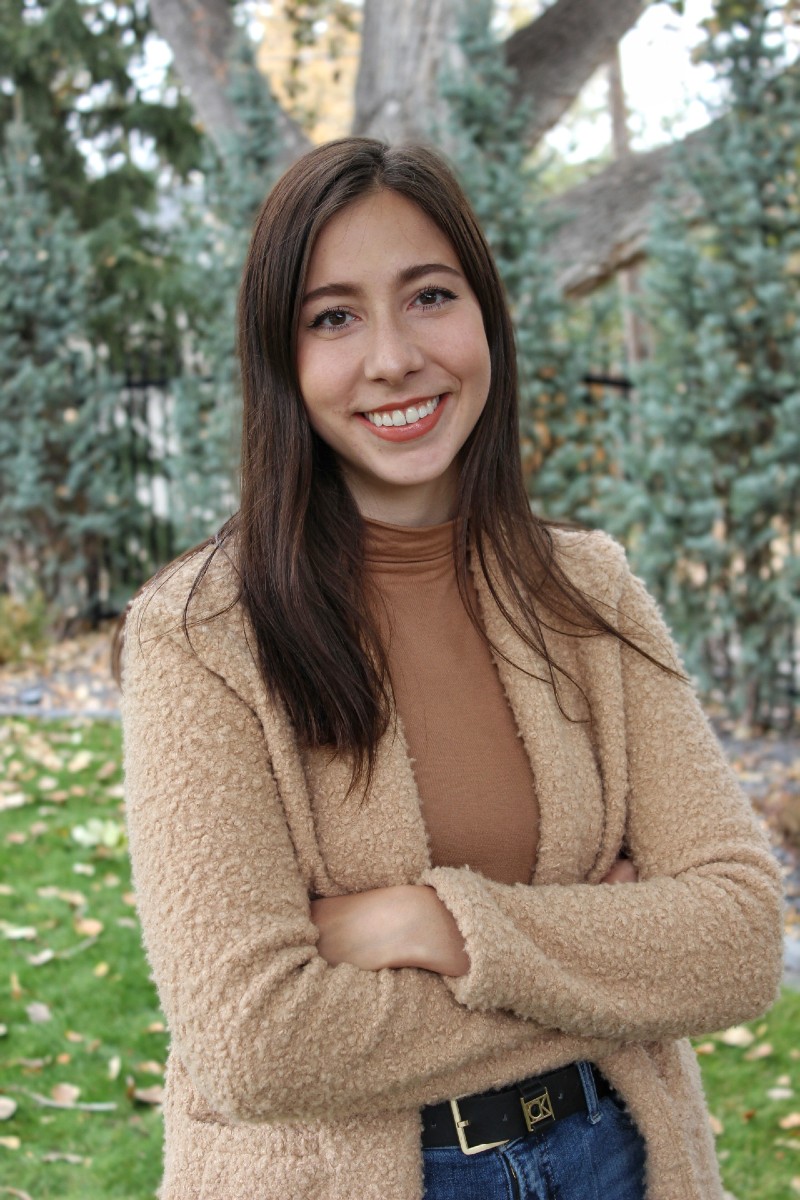
Meet McKenna Gawalko, graduating with a bachelor of science honors degree in the Department of Psychology. Photo supplied.
In 2020, convocation at the University of Alberta is taking place virtually. Join us on November 20th when our graduates, proud family and friends, and instructors will celebrate the class of Fall 2020’s hard work and achievements.
As the celebration approaches, meet McKenna Gawalko, graduating with a bachelor of science honors degree in the Department of Psychology, and hear from her on her time on campus and how undergraduate opportunities sparked ideas for a new career path.
What led you to pick UAlberta for your studies?
I grew up in Calgary, so I was torn between attending the University of Calgary and the University of Alberta Ultimately, I chose UAlberta because of the variety and quality of programs within the Faculty of Science. My dad graduated from the geophysics program in 1989, so it was really special to share our experiences as UAlberta students—and now, UAlberta alumni.
Tell us about your experience in the Faculty of Science.
I started in the physiology and developmental biology program but felt drawn to the field of psychology after taking PSYCO 104 in my first year. I switched to a psychology major and eventually applied to the Honors program to learn more about research areas in psychology.
I feel extremely grateful to have met some wonderful mentors through my experience at the University of Alberta. In developing my honors thesis, I received support from the members of The Group Processes and Leadership Lab in learning how to conduct research and communicate scientific findings. Between my third and fourth year, I completed an internship with the Government of Alberta in community corrections through the Science Internship Program. I felt grateful to be a part of a team that was incredibly supportive and pushed me to try things that were out of my comfort zone. This was a defining experience for me that has changed my outlook on future career paths.
Volunteering with campus groups and student-led nonprofits has been, and continues to be, a big part of who I am today. In volunteering with the ACCESS Outreach Team and Mental Health Copilots, which aim to get folks connected with resources to support their well-being, I met individuals who shared my passion and vision for healthy communities on and beyond campus.
What is one of your favourite memories from your time at UAlberta?
It's tough for me to think of one specific memory that stands out amidst all the wonderful experiences I've had during my time here. I will fondly remember the feeling of walking around campus in the fall, with golden leaves everywhere and a buzz of excitement in the air. I met my partner of five years in Lister during the fall in my first year too. It's incredible to reflect on where we started and how far we've come.
What advice do you have for current and future students at the Faculty of Science?
Don't be afraid to ask questions, ask for clarification, and ask for help! If you don't know what you're doing, that's okay; I'm confident every student has felt confused, directionless, or like they could benefit from help at some point during their degree, myself included. I'm glad that I asked the questions I did, as they opened many doors, and ultimately shaped my degree and university experience.
How have you spent your time during COVID-19 distancing?
COVID-19 has been a time warp. Some days I feel like my creativity and motivation are endless and other days, it's a feat to change out of sweatpants. I'm trying to show myself compassion and remember that both of these extremes are okay.
When I'm feeling more motivated, I work with my partner on our shared projects, explore the river valley on my bike, re-teach myself sewing basics, and cook.
How do you plan on celebrating convocation?
My plan is to share a nice dinner with my partner after work and call my family.
What's next after graduation?
Right now I'm working as a community resource specialist for the Canadian Mental Health Association, where I connect callers who reach out to 2-1-1 with government, social, and health resources. Through this role and other volunteer experiences, I have come to appreciate how challenging it can be for individuals to get connected with services that support their well-being in a comprehensive, holistic, and enduring way.
I plan to apply to the occupational therapy program at the University of Alberta in hopes of supporting vulnerable and marginalized populations through awareness initiatives, consultation, activism, and research.